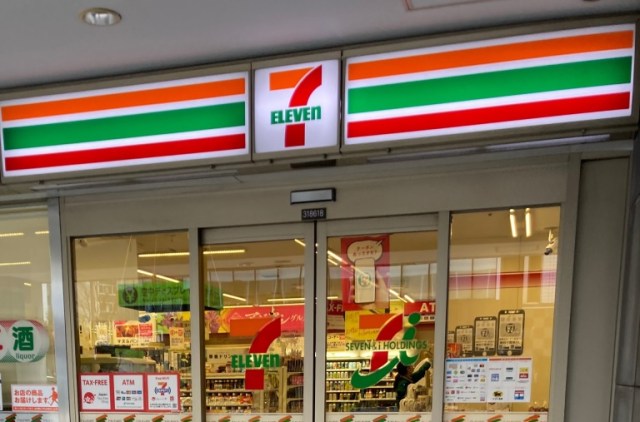
And because it’s a Japanese convenience store, our list has everything from desserts to fish.
We’re pretty much always plotting what to get on our next Japanese convenience store run, but especially so on July 11, or 7-11, when we can’t stop thinking about 7-Eleven. Although 7-Eleven Day isn’t an official holiday (at least not yet), we decided to celebrate it anyway by asking several SoraNews24’s most combini-savvy reporters for their recommendations for delicious 7-Elven Japan items that might be flying under other shoppers’ radars, and they came back with the following list of seven items that could use more love, because it’s not possible for our reporters to love them any more than they already do.
1. Kusamochi (140 yen [US$1.04]) – Recommended by Go Hatori
Kusamochi is a kind of rice flower dumpling made with yomogi (mugwort), which gives its flavor a sophisticated herbal underpinning that compliments the Hokkaido-grown sweet red bean filling 7-Eleven uses. Go is a big fan of yomogi sweets, regularly sampling the ones from all the major supermarket and convenience store chains, but 7-Eleven’s remains the best and most flavorful one out there in his opinion. Plus, at just 128 calories, Go doesn’t have to feel that guilty when he munches on one of these sweet treats at breakfast time.
2. Mackerel with grated radish and ponzu (268 yen) – Recommended by Mr. Sato
Going from something that’s “healthy for sweets” to just plain “healthy,” Mr. Sato is deeply fond of this mackerel (or “saba,” to use the Japanese name for the fish) dish in summer. When the heat and humidity are sapping his appetite, but he knows he still needs to get some protein and other nutrients, this is a quick and tasty fix that won’t leave him feeling sluggish or bloated, and the citrussy ponzu seasoning has a revitalizing effect on a sweltering summer day.
3. Canned simmered mackerel (192 yen) – Recommended by Seiji Nakazawa
Coming to our second saba selection, canned mackerel has been surging in popularity in recent years in Japan, with singles and families alike discovering that keeping a stock of them in your kitchen cabinet makes for a healthy and satisfying centerpiece to pair with white rice and a quick side dish or two such as a salad or bowl of miso soup.
Similar to Go’s thorough taste-testing of yomogi sweets, Seiji has eaten canned mackerel from a number of different companies, but 7-Eleven’s, which uses mackerel caught off the coast of Japan’s Seto Inland Sea, is far and away the best, he says. Other brands’ fish can sometimes be dry and flakey, but 7-Eleven’s is meaty and juicy, and in all the years he’s been buying it, the chain has never given him a can with poor-quality fish inside.
4. Salt-grilled mackerel (321 yen) – Recommended by Takashi Harada
Our third, and final, mackerel recommendation comes from Takashi, whose go-to pick is a straight-up grilled mackerel filet. Just peel back the corner of the soft-plastic lid, stick it in the microwave for 50 seconds, and it’s ready to eat. This is especially handy if you live in a tiny one-room Japanese apartment and can’t grill fish on the stove without transferring the smell to your clothing and bedsheets, and it’s also a life-saver if you have a job where you work late and can’t make it to the grocery store before the day’s seafood sells out.
5. Cheddar cheese buns (205 yen) – Recommended by P.K. Sanjun
7-Eleven also calls these “pon de queso,” but regardless of the name you get three buns to a pack. These are actually part of a whole mini-bread family of 7-Eleven products, but according to P.K. the cheese version is “the king of mini breads.” However, he adds that it also demands the royal treatment of toasting before eating, so he says to put in in your toaster oven until the outer layer is just about to singe. That’ll give the inside a super-soft, almost melty texture, and it’s exactly what P.K. likes to scarf down for breakfast.
6. Moko Tanmen Nakamoto Spicy Miso (216 yen) – Recommended by Ahiru Neko
Hey, you can’t go to the convenience store and not grab some instant ramen while you’re there, right? Oddly enough, Ahiru Neko isn’t ordinarily a big fan of spicy food, but this is an exception, as the collaboration between 7-Eleven and fiery Tokyo-based ramen chain Moko Tanmen Nakamoto is a cup of noodles that he keeps going back to again and again.
7. Now River Rich Caramel (192 yen) – Recommended by Mariko Ohanabatake
At the end of out seven-stop 7-Eleven recommendation list we don’t just have a dessert, but also an edible pun. There’s a type of traditional Japanese sweet called imagawayaki, thought to be named after the Imagawabashi section of Tokyo, where it was first sold during the feudal era. Imagawa is a fairly common family name, but if you take the kanji it’s written with, 今川, they translate literally as “now river,” which seems to be where 7-Eleven got the name for its brand of imagawayaki.
The traditional filling for imagawayaki is sweet red bean paste, but New River isn’t afraid to try new things, so these castella cake discs are filled with caramel sauce instead. They’re sold frozen, and while 20 seconds in the microwave will get one completely warmed up, you can also cut the process short at 10 seconds for a chilled version instead, which is Mariko’s preferred style in midsummer.
The New Rivers also come three to a pack, giving you the option to share them with friends or indulge in all by yourself, whichever you feel is more in keeping with the true spirit of 7-Eleven Day.
Photos © SoraNews24
● Want to hear about SoraNews24’s latest articles as soon as they’re published? Follow us on Facebook and Twitter!
[ Read in Japanese ]

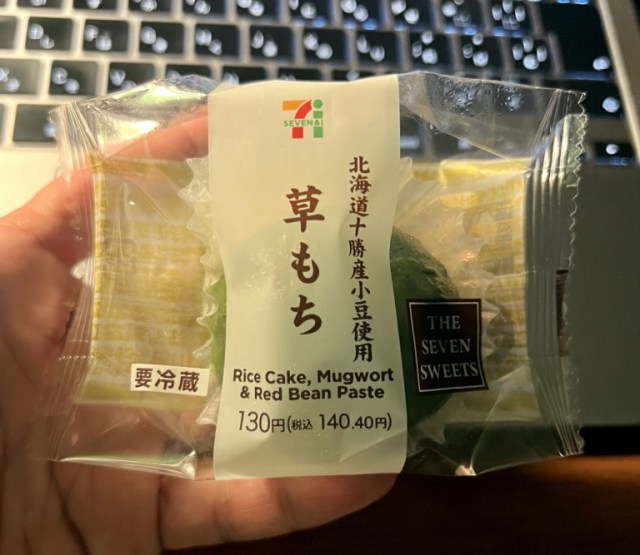
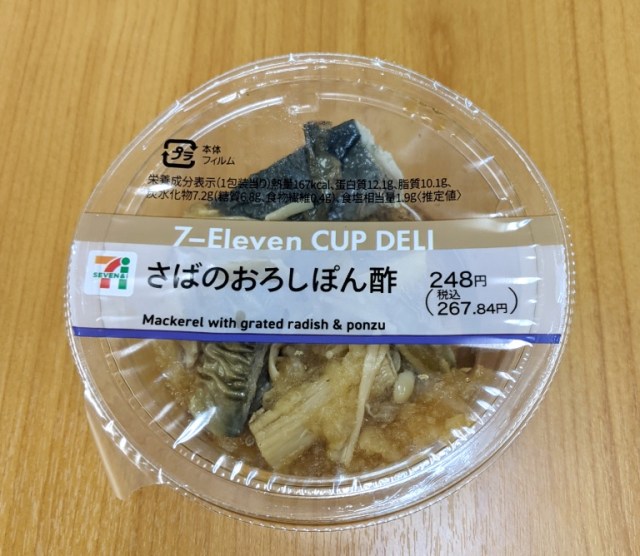
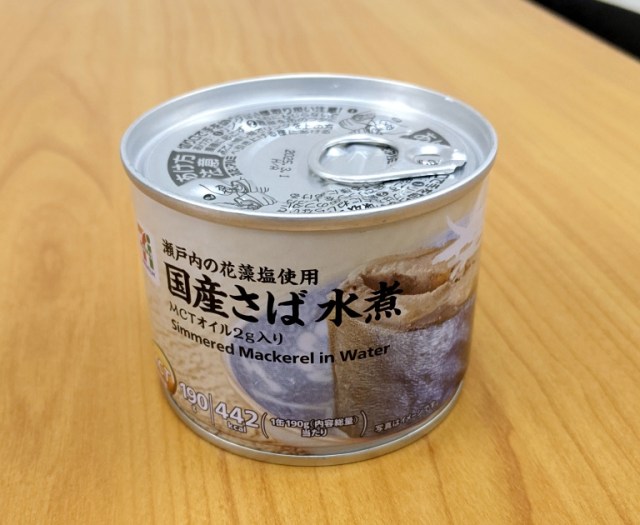
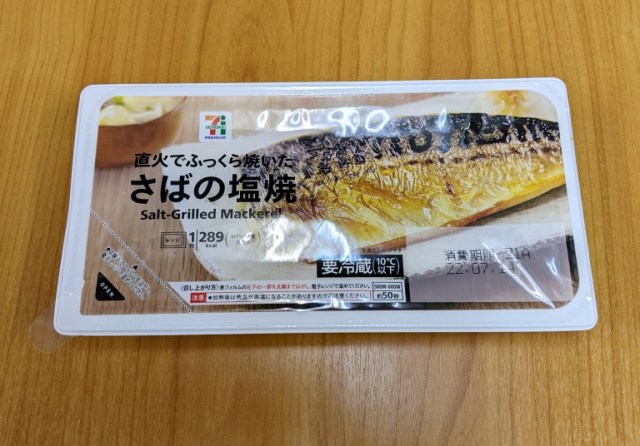

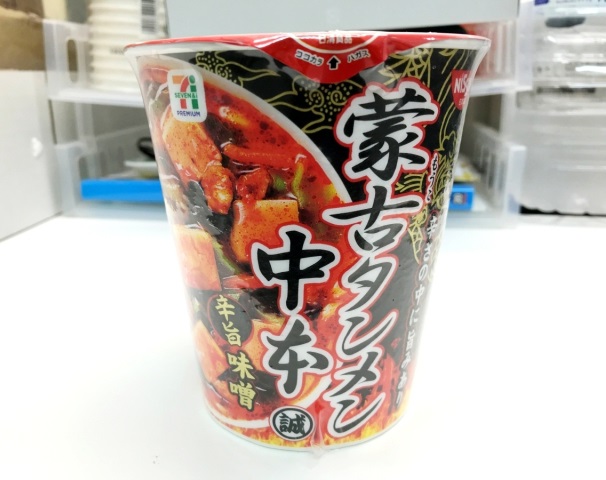
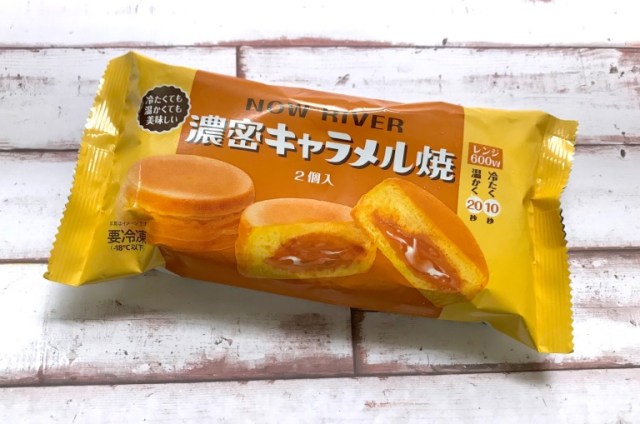
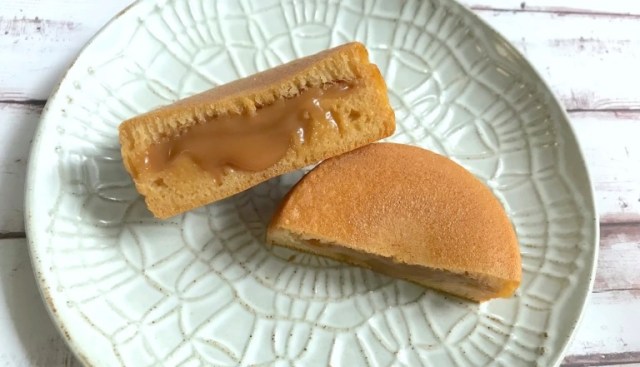
 7-Eleven Japan planning to become even more awesome by baking its own bread in-store
7-Eleven Japan planning to become even more awesome by baking its own bread in-store 10 things you should buy at 7-Eleven in Japan
10 things you should buy at 7-Eleven in Japan “THIS is Pork!” 7-Eleven’s pre-made chashu pork is here to elevate your instant ramen【Taste test】
“THIS is Pork!” 7-Eleven’s pre-made chashu pork is here to elevate your instant ramen【Taste test】 7-Eleven opens “next generation” SIP convenience store in Japan
7-Eleven opens “next generation” SIP convenience store in Japan 7-Eleven Japan gets into the sort-of-freshly baked pizza home delivery business【Video】
7-Eleven Japan gets into the sort-of-freshly baked pizza home delivery business【Video】 Visiting Japan’s Gyarados Pokémon park in the city with a special connection to Magikarp【Photos】
Visiting Japan’s Gyarados Pokémon park in the city with a special connection to Magikarp【Photos】 Japanese vending machine serves up unique drinks at four Tokyo train stations
Japanese vending machine serves up unique drinks at four Tokyo train stations Bear meat noodles?!? Tokyo restaurant adds a new kind of niku soba to its menu【Taste test】
Bear meat noodles?!? Tokyo restaurant adds a new kind of niku soba to its menu【Taste test】 Majority of Japanese women in survey regret marrying their husband, but that’s only half the story
Majority of Japanese women in survey regret marrying their husband, but that’s only half the story Canned cuteness as Hello Kitty and friends kick off Can Chara capsule toy line【Photos】
Canned cuteness as Hello Kitty and friends kick off Can Chara capsule toy line【Photos】 Japan’s foreign tourist numbers projected to fall for first time in years in 2026
Japan’s foreign tourist numbers projected to fall for first time in years in 2026 Starbucks Japan releases new drinkware and goods for Valentine’s Day
Starbucks Japan releases new drinkware and goods for Valentine’s Day New Japanese menstrual product seeks to help women spot unidentified iron deficiencies
New Japanese menstrual product seeks to help women spot unidentified iron deficiencies Nearly one in ten young adults living in Japan isn’t ethnically Japanese, statistics show
Nearly one in ten young adults living in Japan isn’t ethnically Japanese, statistics show 【Rocket Food】 One Piece Chicken! Cook for Monkey D. Luffy at Home Tonight with this Simple Recipe
【Rocket Food】 One Piece Chicken! Cook for Monkey D. Luffy at Home Tonight with this Simple Recipe Starbucks Japan releases new Frappuccino and latte for Valentine’s Day
Starbucks Japan releases new Frappuccino and latte for Valentine’s Day Our 52-year-old pole dancing reporter shares his tips for achieving your New Year’s exercise goal
Our 52-year-old pole dancing reporter shares his tips for achieving your New Year’s exercise goal Totoro cream puffs and Catbus cookies are finally available in downtown Tokyo
Totoro cream puffs and Catbus cookies are finally available in downtown Tokyo Massive manga collaboration bringing 100 years of Shueisha manga to Uniqlo T-shirts【Photos】
Massive manga collaboration bringing 100 years of Shueisha manga to Uniqlo T-shirts【Photos】 Giant hotel rooms in Osaka reflect the new non-niche face of travel in Japan.
Giant hotel rooms in Osaka reflect the new non-niche face of travel in Japan. Japanese women showing rebounding interest in giving Valentine’s Day chocolate【Survey】
Japanese women showing rebounding interest in giving Valentine’s Day chocolate【Survey】 Japan’s kid-friendly ski program is now selling Pikachu snowboards for a limited time only
Japan’s kid-friendly ski program is now selling Pikachu snowboards for a limited time only Ramen restaurant’s English menu prices are nearly double its Japanese ones, denies discriminating
Ramen restaurant’s English menu prices are nearly double its Japanese ones, denies discriminating 10 times to avoid traveling in Japan in 2026
10 times to avoid traveling in Japan in 2026 Starbucks Japan ready to get Year of the Horse started with adorable drinkware and plushies【Pics】
Starbucks Japan ready to get Year of the Horse started with adorable drinkware and plushies【Pics】 7-Eleven Japan starts new temporary luggage storage service in over 300 branches
7-Eleven Japan starts new temporary luggage storage service in over 300 branches Disillusionment at Tsukiji’s tourist-target prices led us to a great ramen restaurant in Tokyo
Disillusionment at Tsukiji’s tourist-target prices led us to a great ramen restaurant in Tokyo Starbucks teams up with 166-year-old Kyoto doll maker for Year of the Horse decorations【Photos】
Starbucks teams up with 166-year-old Kyoto doll maker for Year of the Horse decorations【Photos】 Japan may add Japanese language proficiency, lifestyle classes to permanent foreign resident requirements
Japan may add Japanese language proficiency, lifestyle classes to permanent foreign resident requirements Survey asks foreign tourists what bothered them in Japan, more than half gave same answer
Survey asks foreign tourists what bothered them in Japan, more than half gave same answer Japan’s human washing machines will go on sale to general public, demos to be held in Tokyo
Japan’s human washing machines will go on sale to general public, demos to be held in Tokyo We deeply regret going into this tunnel on our walk in the mountains of Japan
We deeply regret going into this tunnel on our walk in the mountains of Japan Studio Ghibli releases Kodama forest spirits from Princess Mononoke to light up your home
Studio Ghibli releases Kodama forest spirits from Princess Mononoke to light up your home Major Japanese hotel chain says reservations via overseas booking sites may not be valid
Major Japanese hotel chain says reservations via overseas booking sites may not be valid Put sesame oil in your coffee? Japanese maker says it’s the best way to start your day【Taste test】
Put sesame oil in your coffee? Japanese maker says it’s the best way to start your day【Taste test】 No more using real katana for tourism activities, Japan’s National Police Agency says
No more using real katana for tourism activities, Japan’s National Police Agency says Starbucks Japan reveals new sakura drinkware collection, inspired by evening cherry blossoms
Starbucks Japan reveals new sakura drinkware collection, inspired by evening cherry blossoms Updated cherry blossom forecast shows extra-long sakura season for Japan this year
Updated cherry blossom forecast shows extra-long sakura season for Japan this year 7-Eleven Japan adding fresh-brewed tea machines to 2,000 stores, but is their tea any good?
7-Eleven Japan adding fresh-brewed tea machines to 2,000 stores, but is their tea any good? 7-Eleven Japan’s ramen-cooking robot whipped us up a bowl of noodles【Taste test】
7-Eleven Japan’s ramen-cooking robot whipped us up a bowl of noodles【Taste test】 Ruling reached in lawsuit between 7-Eleven Japan, rogue owner who didn’t stay open 24 hours a day
Ruling reached in lawsuit between 7-Eleven Japan, rogue owner who didn’t stay open 24 hours a day 7-Eleven Japan’s “Paper Tiger” sandwich sparks online controversy over deceptive packaging
7-Eleven Japan’s “Paper Tiger” sandwich sparks online controversy over deceptive packaging The most expensive pancakes we could find at 7-Eleven Japan are a delicious bargain【Taste test】
The most expensive pancakes we could find at 7-Eleven Japan are a delicious bargain【Taste test】 7-Eleven Japan’s new Uji Matcha Bavarois keeps an old sweets store’s tradition alive
7-Eleven Japan’s new Uji Matcha Bavarois keeps an old sweets store’s tradition alive Canadian corporation withdraws bid to acquire 7-Eleven Japan and its parent company
Canadian corporation withdraws bid to acquire 7-Eleven Japan and its parent company Behold! It’s a rare 7-Eleven “Grand Opening Commemorative Lucky Bag”
Behold! It’s a rare 7-Eleven “Grand Opening Commemorative Lucky Bag” 7-Eleven Japan now has two tiers of salmon rice balls, but is the new, cheaper one any good?【Taste test】
7-Eleven Japan now has two tiers of salmon rice balls, but is the new, cheaper one any good?【Taste test】 Three great mint chocolate sweets to buy at 7-Eleven while the summer heat gives us an excuse
Three great mint chocolate sweets to buy at 7-Eleven while the summer heat gives us an excuse 7-Eleven Japan’s new acai smoothie becomes a hit with customers
7-Eleven Japan’s new acai smoothie becomes a hit with customers 7-Eleven’s reverse-colored watermelon popsicle might be the crazy snack we all need this summer
7-Eleven’s reverse-colored watermelon popsicle might be the crazy snack we all need this summer Deceptive strawberry milk package angers 7-Eleven customers following banana scandal
Deceptive strawberry milk package angers 7-Eleven customers following banana scandal 7-Eleven Japan powers up even more with new baked-in-store breads and pastries【Taste test】
7-Eleven Japan powers up even more with new baked-in-store breads and pastries【Taste test】 The Fuwatoro Yamaimo Teppan just might be 7-Eleven Japan’s dish of the year【Taste test】
The Fuwatoro Yamaimo Teppan just might be 7-Eleven Japan’s dish of the year【Taste test】 5 reasons why this new 7-Eleven ice cream is amazing
5 reasons why this new 7-Eleven ice cream is amazing
Leave a Reply